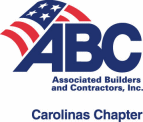A $15 million school construction project is being let by a local board of education, and you really want this contract. Your team has been working relentlessly over the past week to accurately estimate the project and provide the school board with the most competitive price possible. You’ve sharpened your pencil, and reduced your margin to virtually nothing in the hopes of landing this project. Time to submit your proposal, fingers crossed…
…Well, the bid opening has now come and gone, and unfortunately, it looks like the work is going to be awarded to one of your competitors. However, you believe there was an irregularity in the bidding process, and the more you think about it, the more you want to contest what you consider to be an unjust result. Should you sue in an attempt to stop the contract from being awarded to your competitor?
The answer to that question depends substantially on the severity of the irregularity you’re concerned about.
That’s because local awarding authorities in North Carolina have a tremendous amount of discretion in the awarding of public contracts. While it is true that single-prime contracts with an estimated value greater than $300,000 ($500,000 for state agency and UNC-system projects) must be awarded to the “lowest responsible bidder” as a matter of statutory law, our courts, in the absence of fraud or palpable abuse of discretion, will not upset a local government’s awarding of a construction contract. See Mullen v. Town of Louisburg, 225 N.C. 53, 33 S.E.2d 484 (1945). That abuse of discretion standard can be tough to satisfy, and makes formal bid protests — i.e., lawsuits aimed at preventing an award of a construction contract to your competitor — substantially difficult to win in the Old North State. Specifically, local authorities enjoy a tremendous amount of discretion in determining which bidders are “responsible,” and are within that discretion, for example, when they deprive an apparent low bidder of a project award based on a finding of irresponsibility.
Conduct by the awarding authority in direct contravention of the public bidding statutes (found at Chapters 143-128 and 143-129 of the North Carolina General Statutes) likely would be considered an abuse of discretion and satisfy the standard. Trouble is, blatant statutory violations rarely occur. Rather, the irregularities I tend to hear about involve facts suggesting an imperfect bidding process — but not necessarily so egregiously imperfect as to warrant judicial reversal of a public official’s decision-making under the applicable abuse of discretion standard.
Bottom line, analyzing the potential merits of a bid protest is a fact-intensive exercise requiring the assistance of counsel. If you think your facts might support blocking the award of a construction contract, it is absolutely essential that you contact an attorney right away. Once the prime contract is signed, the work is likely forever beyond your reach, and even a successful bid protest would likely yield only your bid preparation costs. So time is of the essence. If you think you may have solid grounds for challenging a public bid, contact an attorney immediately to discuss your legal options.







Thank you for posting on a salient issue that is happening in Georgia as well–particularly by the local municipalities. In an effort to help their own communities by putting local contractors to work, they appear to be ignoring their own rules in order to grant preferential treatment. We have clients who refrain from bidding for certain local governements knowing that their bids will be rejected regardless of the bid amount or their competitors will be given second chances to bid closer.
Pingback: Think You Have Grounds for a Bid Protest? Your Time to Act Is Now. | N.C. Construction Law, Policy & News